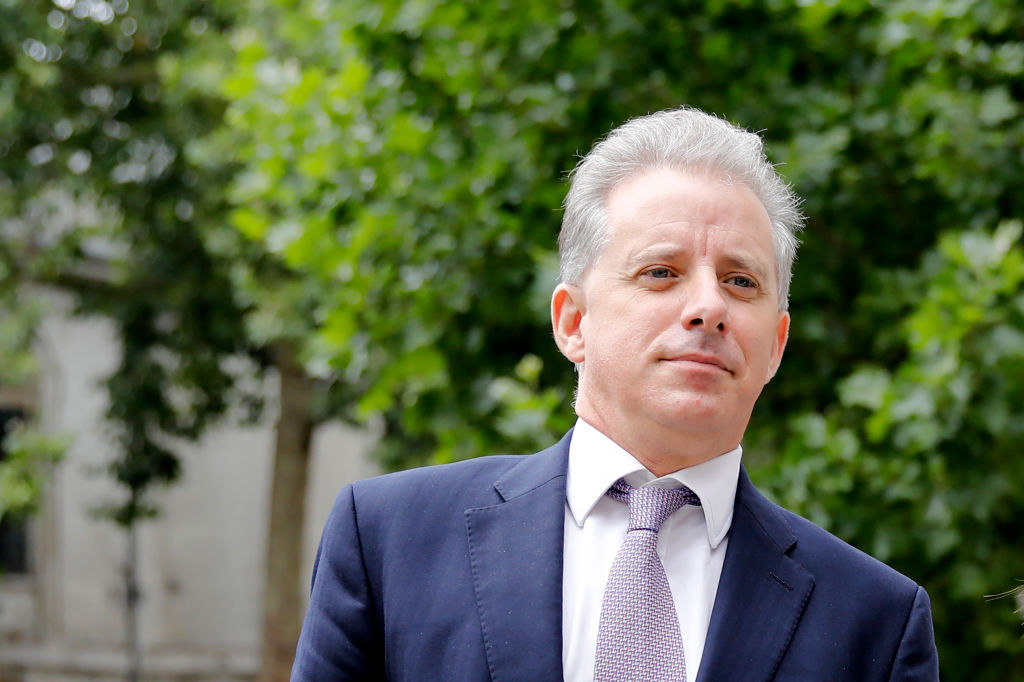The Washington Post’s media critic, Erik Wemple, is calling for a “reckoning” in the news media over its coverage of the Steele Dossier.
In an op-ed published on Monday, Wemple noted that MSNBC’s Rachel Maddow claimed in 2017 that the Steele Dossier, an opposition research file on former President Donald Trump, contained information from “deep cover sources inside Russia.”
“A federal indictment unsealed Thursday has something to say about the quality of those ‘sources,’” Wemple wrote as he noted the dossier’s main researcher, Igor Danchenko, was indicted last week for allegedly making false statements to the FBI about his sources.
The indictment stemmed from special counsel John Durham’s investigation into the origins of the Russia probe.
Wemple added, “Danchenko isn’t a deep-cover type; he’s a Russian national living in the United States and a former Brookings Institution analyst who ‘focused on analyzing business and political risks in Russia,’ as the New York Times put it.”
He went on to say the indictment “doubles as a critique of several media outlets that covered Steele’s reports in 2016 and after its publication by BuzzFeed in January 2017.”
“As discussed in this series, CNN, MSNBC, Mother Jones, the McClatchy newspaper chain and various pundits showered credibility upon the dossier without corroboration — and found other topics to cover when a forceful debunking arrived in December 2019 via a report from Justice Department Inspector General Michael Horowitz,” he explained.
The media critic continued to note that the indictment alleges several claims in the dossier provided by Dancheko stemmed from fabricated encounters.
Wemple noted that the Post and ABC News have both said they are reviewing their coverage of information that was in the Steele Dossier.
He went on to argue that news organizations may “face a mismatch” as they review their coverage as he noted, “The sourcing for the Post’s reporting about Millian’s alleged conversation is unclear, while ABC News attributes its primary assertion to ‘a person familiar with the raw intelligence provided to the FBI.’”
Meanwhile, he said the indictment “relies on emails, interviews and other powerful investigative tools.”
“These news outlets now face a steep journalistic challenge — that of returning to their source(s) in an effort to back up the original claims that Millian was an unwitting source for the dossier. If that effort doesn’t produce enough evidence to surmount the allegations in the indictment, there’s only one option: Retract the stories. Allowing one version of events to sit awkwardly alongside another — and leaving it to the reader to decide — won’t cut it,” Wemple said.
Finally, Wemple noted that the Senate Intelligence Committee released a bipartisan report that found Russian operatives “disrupted an American election to help Mr. Trump become president.”
Still, he argued, “Just as Durham can’t use the dossier to deflect from the larger Trump-Russia tableau, however, people such as Maddow and others can’t use the larger Trump-Russia tableau to deflect from their coverage of the dossier. A reckoning is years overdue.”
As The New York Times reported, “The analyst, Igor Danchenko, was a primary researcher for claims that went into the so-called Steele dossier, a compendium of rumors and unproven assertions suggesting that Mr. Trump and his 2016 campaign were compromised by and conspiring with Russian intelligence officials to help him defeat Hillary Clinton.”
“In a 39-page indictment obtained by the special counsel, John H. Durham, a grand jury accused Mr. Danchenko of five counts of making false statements to the F.B.I. about his sources for certain claims in the dossier,” it added.

























 Continue with Google
Continue with Google